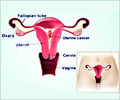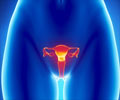New study results provide a view that breast cancer drugs could activate mutations that cause uterine cancer.

TOP INSIGHT
Tamoxifen-associated uterine cancer risk in patients with breast cancer may be concurrently treated with PI3K pathway inhibitors.
“We want to make sure people understand that tamoxifen is safe to use, and tamoxifen-associated uterine cancer is infrequent,” said study author Rinath Jeselsohn, MD, an assistant professor of medicine and medical oncology at Dana-Farber Cancer Institute and Harvard Medical School.
Cancer treatments that increase the risk for secondary tumors typically do so by creating and/or selecting for mutations that cause uncontrolled growth in other tissues.
To define the mutational landscape of TA-UC, researchers performed whole-exome sequencing on 21 TA-UC samples from the study which evaluated the occurrence of secondary cancers in tamoxifen-treated patients.
They compared the results with cancers that were not associated with tamoxifen use and found that most genomic alterations occurred at similar rates between TA-UC and de novo uterine cancers.
The gene PIK3CA was mutated in 14 percent of TA-UCs versus 48 percent of de novo uterine cancers, and the gene PIK3R1 was mutated in none of the studied TA-UCs versus 31 percent of de novo uterine cancers.
To investigate the mechanisms of decreased PI3K pathway mutations in TA-UCs, researchers examined uterine tissue from tamoxifen-treated mice. They found that tamoxifen increased the expression of Ki67, a marker of cell proliferation.
They also sequenced RNA from the uterine tissue and stained for phosphorylated proteins in the PI3K pathway – such as IGF1R, AKT, and S6 – which indicates pathway activation.
These data revealed a significant increase in PI3K pathway activation among tamoxifen-treated mice, as compared with mice-treated vehicle control.
The long-term data from the study also showed that the excess risk of uterine cancer was confined to the duration of treatment and this finding may be a part of the multi-step process of tumor development.
Limitations of this study include a relatively small number of available patient samples since TA-UC is not a common disease, as well as the fact that samples were from formalin-fixed paraffin-embedded tissue, which introduces challenges related to genomic characterization.
Source-Medindia
 MEDINDIA
MEDINDIA




 Email
Email










